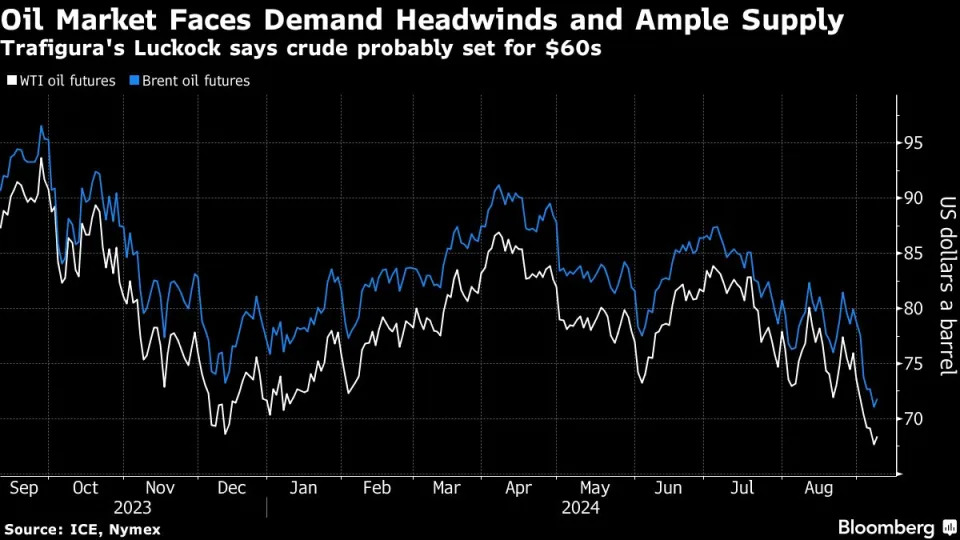(Bloomberg) -- Two of the world’s largest commodities traders have painted a bleak picture on the outlook for the oil market, echoing concerns over Chinese demand and plentiful supply on day one of the APPEC conference.
The mood from Asia’s biggest gathering of oil executives, traders and investors in Singapore was overwhelmingly bearish, highlighted by a gloomy forecast for Brent crude by Trafigura Group. The global benchmark is “probably going to go into the $60s some time relatively soon,” Ben Luckock, the trader’s head of oil, said at the Asia Pacific Petroleum Conference.
However, Luckock cautioned about being too bearish on the oil market. “It’s dangerous because there’s so many events out there that can ruin your day,” he said. “I wouldn’t put all your chips on the table being short.”
Thousands have gathered at APPEC to talk oil and the broader market, with China’s slowdown and the structural shifts in the global energy mix likely to be hot topics at the event and its famous late-night cocktail parties.
Oil has tumbled since early July — wiping out all of this year’s gains — on concerns about the demand outlook for China and the US, and ample supply from outside of the Organization of the Petroleum Exporting Countries. OPEC+ last week resorted to delaying a planned output increase from October, but is sticking with a longer-term objective to boost production into next year.
Luckock’s downbeat outlook for Brent crude came as Morgan Stanley cut its price forecasts for the benchmark for a second time in a matter of weeks. Futures were trading near $72 a barrel on Monday.
“Today, we are producing much more oil than we are consuming, and that balance is seen to worsen over the next years,” Torbjörn Törnqvist, chairman of major trader Gunvor Group Ltd., said during a panel discussion.
However, Jeff Currie, chief strategy officer of Carlyle Group’s Energy Pathways and a veteran commodities analyst, was more upbeat about the outlook during the same session with Törnqvist. Currie acknowledged China’s economic woes, but pointed to interest-rate cuts from the Federal Reserve and a likely recovery in financial positioning as bullish drivers.
“I’m not going to be jumping up and down for strong demand growth out of China,” said Currie. “The growth going forward for oil and energy is going to come out of places like India, Africa and parts of Latin America.”
One of China’s refining giants — Rongsheng Petrochemical Co. — was also among the few bullish voices. Oil demand in Asia is far from its peak and will largely be driven by the need for petrochemical products, said Hong-Bing Chen, general manager of the company, which is backed by Saudi Aramco.
Still, oil’s so-called price floor may be shifting from about $75 to $80 a barrel to around $70, according to Daan Struyven, the head of research at Goldman Sachs Group Inc. That’s the estimated, long-run US shale breakeven price.
The conference resumes on Tuesday and will hear from executives from BP Plc, Chevron Corp., Repsol SA and TotalEnergies SA on a range of topics including oil trading, shipping and refining.
(Updates details throughout.)


